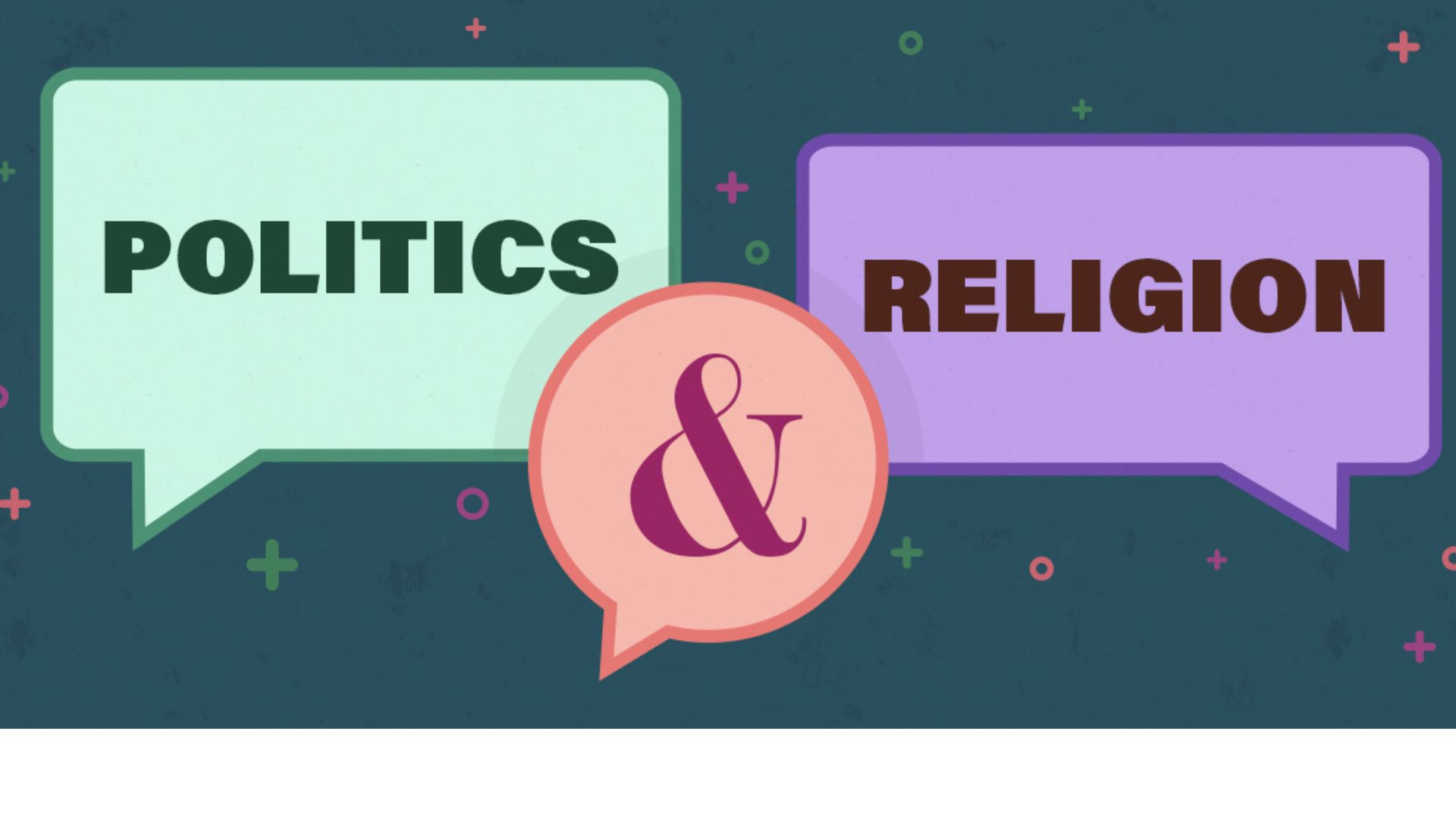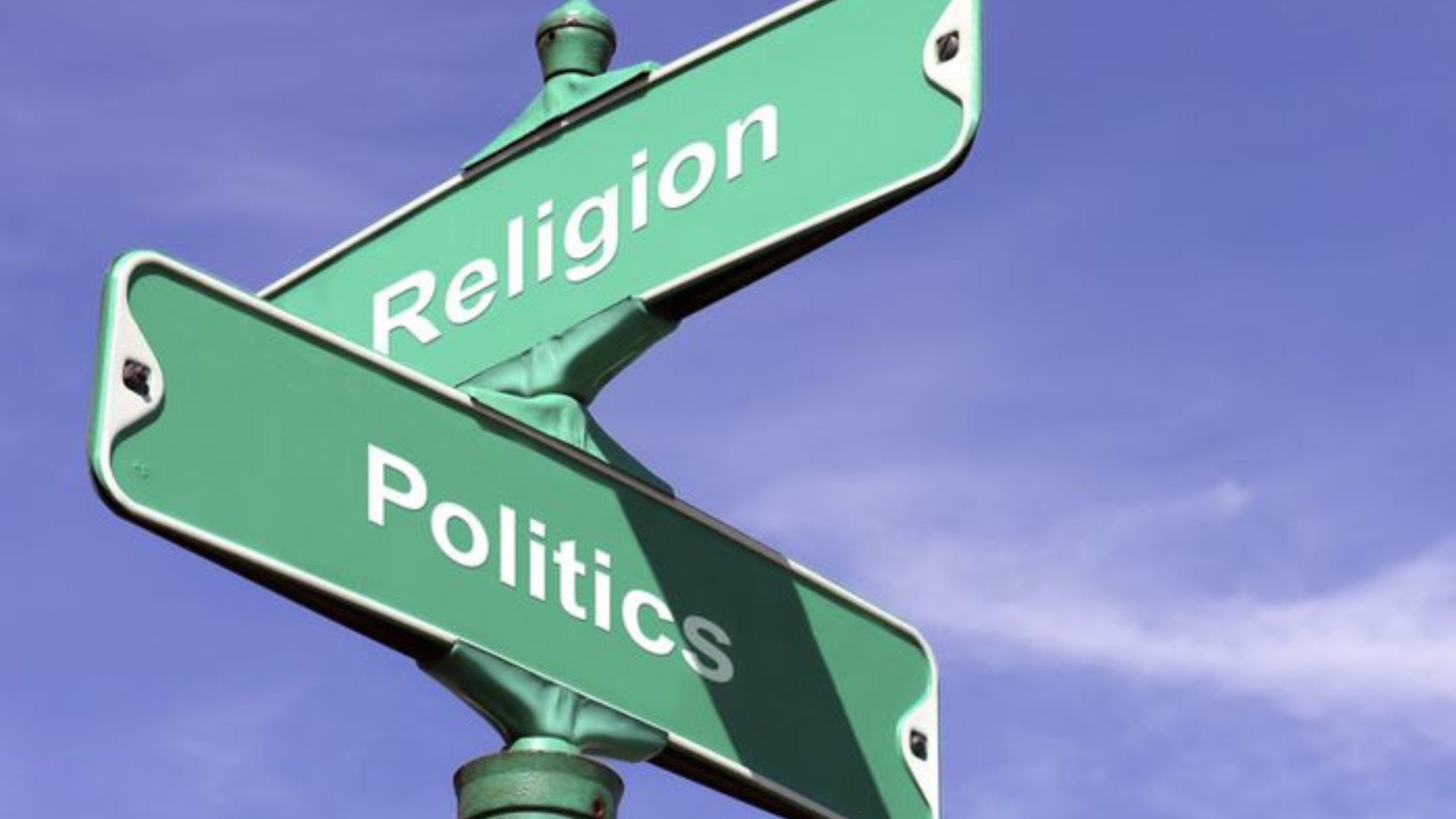
|
Getting your Trinity Audio player ready...
|
Religion and politics have been intertwined throughout history, shaping societies, influencing governance, and sparking debates about the separation of church and state. In this comprehensive exploration, we delve into the multifaceted relationship between religion and politics, examining its historical roots, contemporary dynamics, and implications for governance in diverse societies.

Religion as a Source of Power
Throughout antiquity, rulers often derived their authority from divine mandates, claiming to be gods or chosen by divine forces. Ancient civilizations such as Egypt, Mesopotamia, and Rome elevated their leaders to god-like status, blending religious and political power to maintain control over their subjects. Similarly, theocratic regimes in medieval Europe and the Islamic world wielded religious doctrine to justify political rule and suppress dissent.
The Evolution of Secularism
The Enlightenment era ushered in a new era of secularism, advocating for the separation of church and state to safeguard individual freedoms and promote rational governance. Philosophers like John Locke and Voltaire championed secular ideals, arguing that state institutions should be free from religious influence to ensure equality and protect diverse beliefs. This philosophical shift laid the groundwork for modern democracies built on the principles of secular governance and religious pluralism.
Religion’s Influence on Policy and Politics
In today’s globalized world, religion continues to shape political landscapes, often intersecting with issues such as human rights, social justice, and cultural identity. In some societies, religious groups play a significant role in policymaking, lobbying for legislation aligned with their beliefs and mobilizing voters based on religious affiliations. Conversely, secular movements advocate for the exclusion of religious considerations from public policy, citing the need for impartial governance and the protection of individual liberties.
Challenges to Secularism
The rise of religious fundamentalism and extremism poses challenges to secular governance, as religiously motivated ideologies clash with democratic principles and human rights norms. In pluralistic societies, tensions arise over issues such as education, healthcare, and civil liberties, with competing religious and secular worldviews vying for influence. Striking a balance between religious freedom and state neutrality remains a contentious issue, requiring careful deliberation and dialogue among diverse stakeholders.
Implications for Democracy and Human Rights
The entanglement of religion and politics raises profound questions about democracy, governance, and the protection of human rights. While religion can inspire social activism and moral leadership, it also has the potential to undermine democratic values when wielded as a tool of exclusion or oppression. Ensuring the equitable representation of diverse religious and secular perspectives in policymaking processes is essential for fostering inclusive governance and upholding the principles of democracy and human rights.
Religion’s Influence on Global Affairs
Religion’s impact on politics extends beyond national borders, shaping global affairs and international relations. Religious ideologies often influence foreign policies, diplomatic relations, and conflicts, leading to geopolitical tensions and alliances based on religious affiliations. The Israeli-Palestinian conflict, for example, has deep religious roots, with both sides claiming historical and religious ties to the land of Israel. Similarly, tensions between Sunni and Shia Muslims have fueled conflicts in the Middle East, with sectarian divisions exacerbating regional instability.
Religious Extremism and Terrorism
The rise of religious extremism poses significant challenges to global security, with extremist groups such as ISIS and Al-Qaeda exploiting religious ideologies to justify acts of terrorism. The radicalization of individuals through online propaganda and recruitment efforts has fueled violent extremism worldwide, posing threats to both national and international security. Addressing the root causes of radicalization, including social marginalization, economic disparities, and political grievances, is essential for countering the spread of extremist ideologies and promoting peace and stability.
Religion and Social Justice Movements
Despite its contentious role in politics, religion has also been a driving force behind social justice movements, advocating for equality, human rights, and environmental stewardship. The Civil Rights Movement in the United States, led by religious leaders like Martin Luther King Jr., drew inspiration from Christian principles of justice and equality, challenging systemic racism and discrimination. Similarly, religious leaders and organizations have played pivotal roles in addressing issues such as poverty, healthcare access, and refugee rights on a global scale.
Interfaith Dialogue and Cooperation
In an increasingly interconnected world, fostering interfaith dialogue and cooperation is essential for promoting peace, understanding, and mutual respect among diverse religious communities. Interfaith initiatives bring together religious leaders, scholars, and practitioners to engage in constructive dialogue, address common challenges, and promote collaboration on issues of shared concern. By recognizing the shared values and aspirations that unite humanity across religious divides, interfaith efforts contribute to building bridges of understanding and reconciliation in a world often divided by religious differences.
Conclusion
In conclusion, the relationship between religion and politics is a multifaceted and ever-evolving phenomenon with far-reaching implications for governance and society. While religion has the power to inspire positive change and foster social cohesion, its intersection with politics requires careful navigation to prevent the erosion of democratic norms and the marginalization of minority voices. By promoting dialogue, tolerance, and respect for pluralism, societies can harness the transformative potential of religion while safeguarding the foundations of democratic governance and human rights.
You might also be interested in the following:
- The Influence of Religion on Society
- Nature of Religion: Today’s Spiritual Landscape
- Religious Life Guidelines
- Understanding Ethical Foundations of Religions
